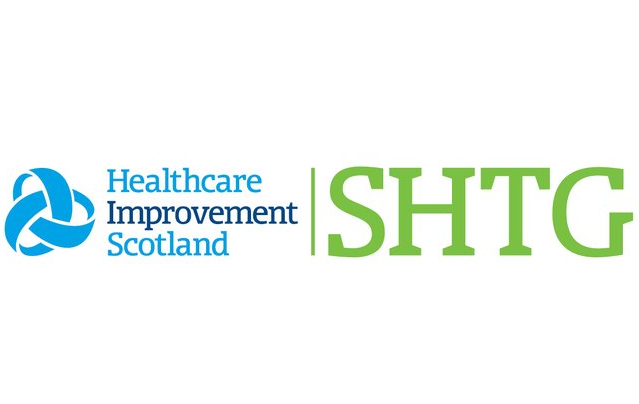Bacteriophage therapy for patients with difficult to treat bacterial infections

SHTG Recommendations for NHSScotland
Conventional antibiotic therapies may be insufficient for a small and diverse group of patients with difficult to treat bacterial infections. This population is characterised by one or more of the following:
- antibiotic resistance
- antibiotic sensitivity but clinical recalcitrance
- high risk of death or significant complications if surgical intervention is used to manage their infection
- patient specific factors that preclude the use of conventional antibiotics.
Bacteriophage therapy may, at the discretion of the responsible clinician, be appropriate management for patients with difficult to treat bacterial infections. A bacteriophage laboratory is being trialled within NHS Tayside. Bacteriophage therapy is not currently licensed by the Medicines and Healthcare Products Regulatory Agency and use must comply with their guidance on the supply of unlicensed medicinal products, available here.
Published evidence on bacteriophage therapy primarily consists of a heterogeneous collection of small single arm cohort studies, small case series and individual case studies. The majority of patients in these studies received bacteriophage therapy in combination with conventional antibiotic therapies. This means that there is a limited evidence base regarding the clinical effectiveness and safety of bacteriophage therapy.
The use of bacteriophage therapy is supported by a small number of randomised controlled trials suggesting that bacteriophage therapy may be effective for patients with difficult to treat bacterial infections.
Exploratory SHTG economic modelling and analysis suggest that the addition of bacteriophage therapy to standard of care is likely to be a cost effective use of resources within a subpopulation of patients with treatment-refractory diabetic foot infection at high risk of lower extremity amputation.
The use of bacteriophage in Scotland must be accompanied by the collection of data to monitor the clinical effectiveness and safety of bacteriophage therapy for specific clinical indications, in order to inform ongoing decision making on the provision of bacteriophage therapy in Scotland.
NHSScotland is required to consider the Scottish Health Technologies Group (SHTG) advice.
How the Council reached the recommendation
- In reaching their recommendations, the Council took into account the range of information and evidence that was gathered as part of the health technology assessment (HTA) process, including the published literature, the SHTG economic evaluation, and public and patient experiences gathered through engagement with Antibiotic Research UK.
- The Council acknowledged that antimicrobial resistance is a global public health challenge and that bacteriophage therapy offers a promising alternative or adjunct to conventional antibiotics.
- The Council recognised the significant impact that difficult to treat bacterial infections have on patients’ quality of life and that of their family members.
- Clinical experts outlined the burden of difficult to treat bacterial infections for patients across NHSScotland and highlighted the potential value of bacteriophage therapy as an adjunctive treatment for these patients.
- The Council agreed that the focus of the research question was on patients with difficult to treat bacterial infections, and that bacteriophage therapy would not be considered for use in a general patient population until sufficient clinical evidence exists. An overview of the current use of bacteriophage therapy across Western Europe and North America on a compassionate use basis was provided, and recent guidelines for the use of bacteriophage therapy in clinical practice produced by the Antimicrobial Resistance Leadership Group in the United States of America were highlighted.
- The Council noted the differences in the reported efficacy of bacteriophage therapy between observational evidence and RCTs. Clinical experts outlined the complexity of conducting clinical trials with a biological medicine such as bacteriophage therapy versus chemical medicines such as conventional antibiotics. They explained that for efficacy to be observed, a therapeutic amount of the correct bacteriophages must be delivered to the correct area to treat infections containing a sufficient number of susceptible bacterial cells. It was noted that trials that have not demonstrated efficacy are unlikely to have fulfilled one or more of these requirements.
- The Council discussed the history of bacteriophage from their discovery in the early 20th century to their subsequent manipulation and therapeutic use. It was noted that as naturally occurring organisms, bacteriophage are non-patentable and it was suggested that this may have hindered their use in modern medical settings.
- The Council asked about the availability of guidance for the clinical use of bacteriophage in patients with different types of infection. Clinical experts explained that further research is required to establish a recommended dose and duration of treatment in specific clinical indications. Experts went on to say that dose and duration is currently guided by the published literature as well as being based on each individual patient’s response to treatment.
- The Council discussed the potential for long-term adverse events associated with bacteriophage therapy, and stated the importance of gathering this safety data. Clinical experts were not aware of any long-term adverse events, but noted that antibodies to a particular bacteriophage can develop during prolonged treatment. The Medicines and Healthcare Products Regulatory Agency’s Yellow Card System facilitates the collection of adverse event data.
- The Council acknowledged the value of the SHTG economic evaluation in informing its decision making, while noting that it was an exploratory analysis within a specific subpopulation of patients within the overall population of the recommendation.
- The Council debated the practicalities of accessing bacteriophage products and expertise from the bacteriophage laboratory hosted within NHS Tayside. It was explained that the bacteriophage laboratory is grant funded for one-year. It was suggested that, if NHSScotland was to manufacture its own bacteriophage products, this should be consolidated within a single specialist centre for financial reasons and to aid the development of expertise.
- The Council highlighted potential equality issues regarding access to treatment between urban and rural health boards. It was explained that patients could be treated with bacteriophage therapy at their local hospital regardless of their geographical location which may mitigate equality of access concerns.
Date of publication: 23 February 2023